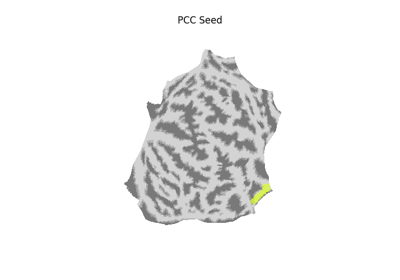Note
This page is a reference documentation. It only explains the class signature, and not how to use it. Please refer to the user guide for the big picture.
nilearn.surface.PolyData¶
- class nilearn.surface.PolyData(left=None, right=None, dtype=None)[source]¶
A collection of data arrays.
It is a shallow wrapper around the
partsdictionary, which cannot be empty and whose keys must be a subset of {“left”, “right”}.Added in Nilearn 0.11.0.
- Parameters:
- left1/2D
numpy.ndarrayorstrorpathlib.Pathor None, default = None - right1/2D
numpy.ndarrayorstrorpathlib.Pathor None, default = None
- left1/2D
- Attributes:
- parts
dictof 2Dnumpy.ndarray(n_vertices, n_timepoints) shapetupleofintShape of the data.
- dtypeDTypeLike object, default=None
dtype to enforce on the data. If
Nonethe original dtype if used.Added in Nilearn 0.12.1.
- parts
Examples
>>> import numpy as np >>> from nilearn.surface import PolyData >>> n_time_points = 10 >>> n_left_vertices = 5 >>> n_right_vertices = 7 >>> left = np.ones((n_left_vertices, n_time_points)) >>> right = np.ones((n_right_vertices, n_time_points)) >>> PolyData(left=left, right=right) <PolyData (12, 10)> >>> PolyData(right=right) <PolyData (7, 10)>
>>> PolyData() Traceback (most recent call last): ... ValueError: Cannot create an empty PolyData. ...
- property shape¶
Shape of the data.
- to_filename(filename)[source]¶
Save data to gifti.
- Parameters:
- filename
strorpathlib.Path If the filename contains hemi-L then only the left part of the mesh will be saved. If the filename contains hemi-R then only the right part of the mesh will be saved. If the filename contains neither of those, then _hemi-L and _hemi-R will be appended to the filename and both will be saved.
- filename
